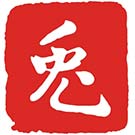 In the coming weeks, you’re going to see more posts from Core lecturers and faculty here on the Core blog, as we find ways to share part of the Core classroom experience with you readers. Prof. Eckel invited Prof. Wiebke Denecke — who lectured this past Tuesday on Confucius for the students of CC102 — to muse for a moment on the significance of Confucius in China today. She accepted the invitation, and had this to say:
In the coming weeks, you’re going to see more posts from Core lecturers and faculty here on the Core blog, as we find ways to share part of the Core classroom experience with you readers. Prof. Eckel invited Prof. Wiebke Denecke — who lectured this past Tuesday on Confucius for the students of CC102 — to muse for a moment on the significance of Confucius in China today. She accepted the invitation, and had this to say:
On his recent visit to the United States, Chinese Premier Hu Jintao visited a Confucius Institute in Chicago. (Photographs from his visit can be found at the website of the Confucius Institute Online). As the government of China seeks to spread its influence through a kind of “soft power” around the world, Confucius has become a symbol of Chinese cultural identity. After Confucius fell so decisively out of fashion during the Cultural Revolution (1966-76), this is a stunning reversal. But maybe we should not be surprised that the ancient Master should have something powerful to say to the contemporary world, since the relevance of antiquity was so much a part of his own message.
In any case, the spirit of Confucius continues to live in the Core Curriculum: “The Master said, I for my part am not one of those who have innate knowledge. I am simply one who loves the past and is diligent in investigating it” (Analect 7.19).
The Chinese character at the top of this post means “rabbit” or “hare,” and is used as a symbol of the Rabbit in the Chinese zodiac. Today, February 3, 2011, is celebrated as New Year’s Day in the Chinese lunisolar calendar. On this holiday, people wish each other success by saying, “Wishing you to be prosperous [in the New Year!]” — gong xi fa cai (“gong she fa chai”) in Mandarin, or gong hei fat choi (“gong hey fat choy”) in Cantonese. Don’t forget to ask for your red envelope filled with good luck money…
